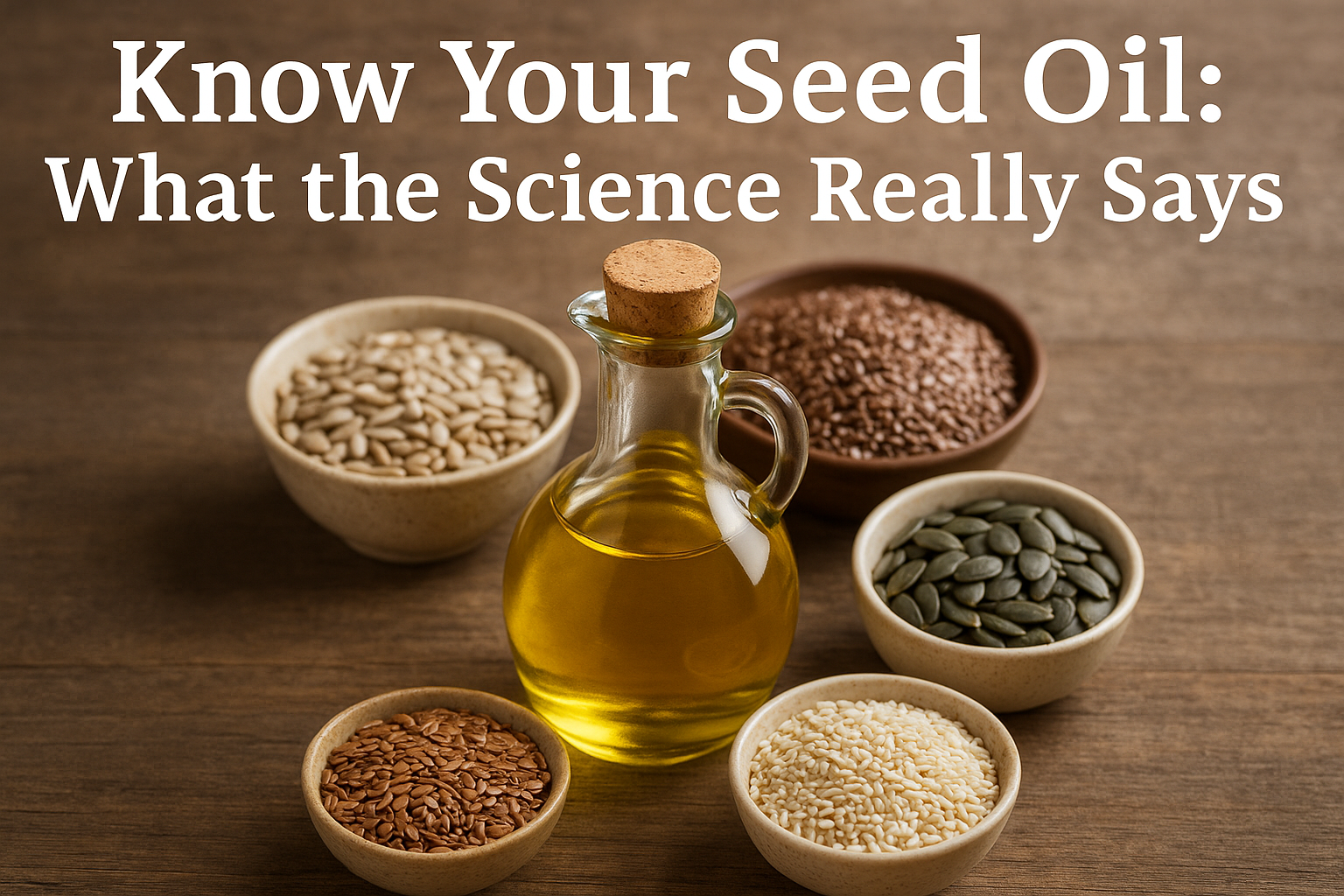A growing debate questions whether industrial seed oils such as soybean, canola, corn, sunflower and safflower oils are harmful to human health or whether they remain a heart healthy choice. While some experts highlight their potential to lower LDL cholesterol, others warn that high omega 6 content, chemical solvents and heat induced byproducts may promote chronic inflammation and disease. This article examines what seed oils are, explores the scientific evidence on both sides and offers practical guidance for choosing and using dietary fats.
Understanding Seed Oils
Seed oils, also known as vegetable or plant based oils, are extracted from the oil rich parts of seeds such as corn germ, soybean beans and sunflower seeds. Industrial extraction relies on high heat, high pressure and chemical solvents such as hexane. Although most solvent residues are removed, trace amounts can remain in the final product. Refining imparts a neutral flavor, long shelf life and high smoke point, making these oils ubiquitous in processed foods and restaurant cooking.
The Omega 6 Omega 3 Balance
Seed oils are rich in polyunsaturated fats, predominantly omega 6 linoleic acid, with comparatively low levels of omega 3 fatty acids. Both types are essential, but they compete for the same enzymes to become biologically active. When omega 6 intake vastly exceeds omega 3 ratios—now often 10 to 1 or higher versus the ancestral range of 1 to 1 to 4 to 1—inflammatory signaling can dominate, potentially contributing to chronic low grade inflammation over time.
Health Evidence and Controversies
Cholesterol and Heart Disease
Major health bodies including the American Heart Association and World Health Organization have long endorsed replacing saturated fats with polyunsaturated fats to lower LDL cholesterol and reduce cardiovascular risk. Meta analyses indicate that swapping butter or lard for seed oils can reduce heart disease events by up to 10 percent.
Inflammation and Oxidative Byproducts
Critics argue that the industrial processing and heating of seed oils produce oxidation products such as aldehydes, lipid peroxides and oxidized linoleic acid metabolites that may injure cells and trigger inflammation. Animal studies link these byproducts to metabolic dysfunction and cardiovascular and neurodegenerative conditions, although robust human trials remain limited.
Epidemiological Findings
Large cohort studies have found inverse associations between higher intake of linoleic acid and coronary heart disease mortality, but these studies cannot fully account for confounding factors such as overall diet quality and lifestyle. Emerging data suggest that extreme omega 6 to omega 3 imbalances may correlate with markers of inflammation, insulin resistance and mood disorders.
Practical Recommendations
Prioritize Whole Foods
Minimize ultra processed foods, which are the primary source of hidden seed oils and contribute to excessive omega 6 consumption. Emphasize vegetables, fruits, legumes, nuts and wild caught fish to naturally balance fatty acid intake.
Choose Stable Cooking Fats
For high heat applications such as frying or roasting, opt for fats with greater oxidative stability and high smoke points such as avocado oil, coconut oil or clarified butter (ghee). For sautéing and moderate heat cooking, extra virgin olive oil and avocado oil remain excellent choices. Use cold pressed oils like extra virgin olive oil, walnut oil or flaxseed oil for dressings and finishing.
Consider Your Omega 6 to Omega 3 Ratio
Aim for an omega 6 to omega 3 intake ratio below 4 to 1. Increase consumption of omega 3 rich foods such as salmon, sardines, walnuts, flaxseeds and chia seeds, and consider algae based supplements if dietary sources are insufficient.
Bottom Line
Seed oils are neither universally villainous nor unequivocally benign. Their health impact depends on extraction methods, cooking practices, overall dietary patterns and the balance of omega 6 and omega 3 fats. By reducing reliance on ultra processed foods, choosing more stable cooking fats and restoring a healthier fatty acid ratio, individuals can harness the benefits of unsaturated fats while minimizing potential risks.





